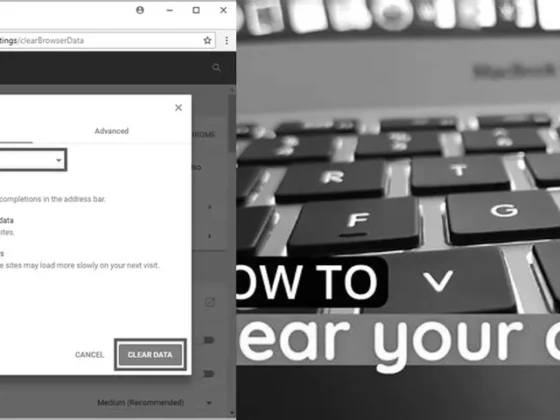Why Does Chrome Think My Clock Is Wrong? Unraveling the Mystery of Time Discrepancies – Is Chrome playing mind games with you? Do you ever wonder why it insists on telling you that your clock is wrong? Well, you’re not alone. Many of us have experienced this puzzling phenomenon and scratched our heads in confusion. But fear not, because in this blog post, we’re going to unravel the mystery behind Chrome’s quirky clock obsession. Get ready to dive into the fascinating world of browser timekeeping and discover why Chrome thinks your clock is wrong. So, buckle up and prepare to be enlightened!
## Understanding Chrome’s Clock Error
When Chrome believes your clock is wrong, it’s more than just a simple glitch; it’s a sign of an underlying issue that can affect your browsing experience. The error often pops up due to the misalignment of date and time settings on your device. However, there are a variety of other causes that can trigger this warning. Let’s delve into each of these potential culprits and explore how they can cause Chrome to display a clock error.
## The Role of Date and Time Settings
At the heart of this issue is the synchronization between your device’s clock and the websites you visit. Web servers use timestamps to validate your connection, and if your device’s date and time settings are incorrect, it can disrupt this process. The importance of accurate date and time settings cannot be overstated, as they are integral to the security protocols that protect your online activities.
### How to Adjust Date and Time on Your Device
If Chrome is indicating that your clock is wrong, the first and simplest step is to verify and adjust your device’s date and time settings. Right-click the date and time section on your computer’s taskbar and select the ‘Adjust date/time’ option. This will direct you to the ‘Date & Time’ section of your system’s settings. If you suspect the settings are off, toggle off the ‘Set time automatically’ option and manually set the correct date and time. Once done, restart Chrome and check if the error persists.
## Time Zone and Region Discrepancies
Impact of Incorrect Time Zone or Region
Selecting the wrong time zone or region on your device can be just as problematic as the wrong date and time. This misinformation can lead to a mismatch between your device’s clock and the website’s expected time zone, causing Chrome to flag an error. To rectify this, ensure that your device’s time zone and region settings align with your current location.
### How to Correct Time Zone and Region Settings
Right-click the date and time on the taskbar, choose ‘Adjust date/time,’ and scrutinize your time zone settings. If they are incorrect, select the appropriate time zone from the drop-down menu. Additionally, verify that the correct region is selected in your device’s settings to avoid further complications.
## The CMOS Battery’s Role
How a Bad CMOS Battery Affects Your Clock
The CMOS battery on your motherboard is responsible for keeping the internal clock running even when the device is powered off. If this battery is failing, it could result in your device losing track of time, leading Chrome to believe your clock is wrong. Replacing a bad CMOS battery is generally a task for those comfortable with opening up their computer, but it’s a relatively inexpensive fix that can restore normal function.
## Dealing with Insecure Websites and SSL Certificates
The Connection Between Insecure Websites and Clock Errors
Chrome is designed to prioritize user security, and part of this involves ensuring that SSL certificates on websites are current and valid. An incorrect system clock may lead Chrome to misinterpret the validity of these certificates. If you encounter a clock error while browsing a website, it’s possible that either your device’s clock is set incorrectly, or the website itself has an expired or misconfigured SSL certificate.
### How to Handle SSL Certificate Cache Issues
At times, the SSL certificate cache on your device may become corrupt, which can also lead to clock errors in Chrome. Clearing this cache can resolve the issue. To do this, you can navigate to Chrome’s settings, clear the browsing data, and specifically target the cached images and files to ensure that SSL certificate information is refreshed.
## The Influence of Browser Cache
Browser Cache Interference
While the browser cache is essential for speeding up your browsing by storing data locally, it can sometimes interfere with the proper functioning of Chrome. If the cache becomes too bloated or contains corrupted data, it can contribute to various errors, including the clock error. Clearing your browser cache regularly can not only resolve these issues but also improve the overall performance of your browser.
### Steps to Clear Chrome’s Cache
To clear the cache in Chrome, access the ‘Clear browsing data’ option from the settings menu. Ensure you select the timeframe to ‘All time’ and tick the boxes for ‘Cookies and other site data’ and ‘Cached images and files.’ After clearing the cache, restart Chrome and check if the clock error has been resolved.
## The Impact of DNS Servers
Incorrect DNS Server Settings and Chrome’s Clock
DNS servers are like the internet’s phonebook, translating domain names into IP addresses. If your device is using incorrect DNS server settings, it can lead to issues when trying to connect to websites, which may manifest as a clock error in Chrome. Ensuring that your DNS settings are correct can help eliminate this as a potential cause of the error.
### How to Update DNS Server Settings
To update your DNS server settings, navigate to the network settings on your device. Here, you can either obtain DNS server addresses automatically or choose to use specific ones, such as Google’s public DNS servers (8.8.8.8 and 8.8.4.4). After updating the DNS settings, restart your device and Chrome to check if the issue has been fixed.
## Summary and Tips for Prevention
In summary, Chrome’s clock error can stem from a variety of issues related to date and time settings, time zone and region discrepancies, CMOS battery health, website security, browser cache, and DNS server settings. Addressing each of these areas can help prevent future occurrences of this error.
### Actionable Tips for Maintaining Accurate Clock Settings
- Regularly check your device’s date and time settings for accuracy.
- Ensure your time zone and region settings are correct, especially if you travel frequently.
- Maintain your device’s health, including the CMOS battery, to avoid timekeeping issues.
- Keep your browser updated and clear the cache periodically to prevent data corruption.
- Verify that your DNS server settings are accurate and consider using reliable public DNS servers.
By understanding the root causes and implementing these preventative measures, you can minimize the chances of encountering Chrome’s clock error and enjoy a seamless browsing experience.
FAQ & Related Questions about Why Does Chrome Think My Clock Is Wrong?
Q: Why does Chrome think my clock is wrong?
A: Chrome may think your clock is wrong if the date and time on your device are not set correctly, or if you have selected an incorrect time zone or region. Other possible causes include a bad CMOS battery, browsing an insecure website, or interference from the browser cache.
Q: How do I get rid of the clock error in Chrome?
A: To get rid of the clock error in Chrome, right-click the date and time section on your computer’s taskbar, select the ‘Adjust date/time’ option, and toggle off the ‘Set time automatically’ option if your PC’s date and time are incorrect.
Q: Why do some websites say my clock is wrong?
A: Some websites may say your clock is wrong if your computer’s date, time, and time zone are not accurate. If the issue persists, it could be due to other factors such as a server misconfiguration or an outdated certificate.
Q: How do I fix the time on Google Chrome?
A: To fix the time on Google Chrome, you need to ensure that your device’s date, time, and time zone are set correctly. You can do this by right-clicking the date and time section on your computer’s taskbar, selecting the ‘Adjust date/time’ option, and making the necessary adjustments.
Q: What are some other possible causes of Chrome thinking my clock is wrong?
A: Apart from incorrect date and time settings and an incorrectly selected time zone or region, other possible causes of Chrome thinking your clock is wrong include a bad CMOS battery, browsing an insecure website, and interference from the browser cache.


